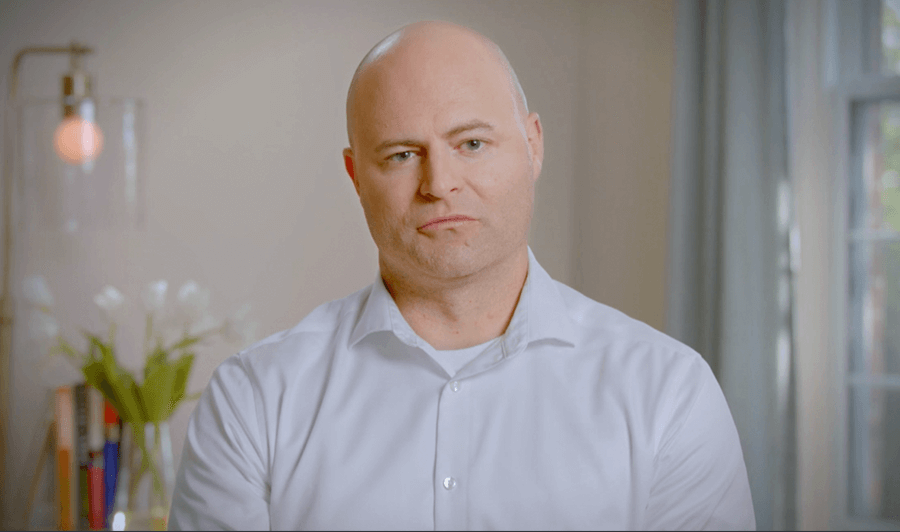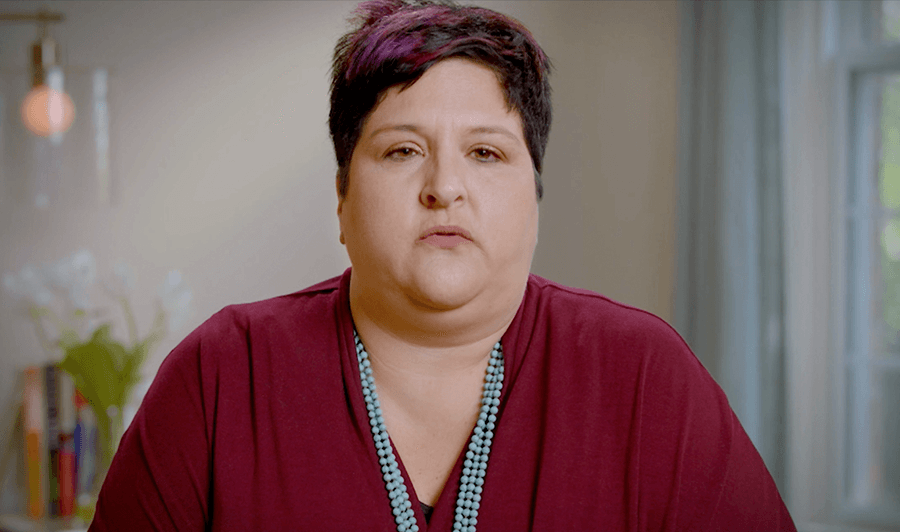
Iowa Pedestrian Accident Lawyers: How RSH Legal Personal Injury Attorneys Can Get Your Medical Bills Paid and a Fair Settlement For Your Injuries
If you’ve been hit by a car as a pedestrian in Iowa, you may be wondering about your legal options. Seeking legal representation is crucial to ensure you get the compensation you deserve. Our experienced Iowa pedestrian accident lawyers are here to help you navigate the complex legal landscape and protect your rights.
Being hit by a car as a pedestrian in Iowa can be a traumatic experience. Knowing what to do immediately after the accident and understanding your legal options can make a significant difference in protecting your rights and securing the compensation you deserve. Our experienced Iowa pedestrian accident lawyers are here to guide you through every step of the process.
Immediate Steps to Take After You’ve Been Hit by a Car
If you are hit by a car, it is crucial to stay calm and focused. Here are the immediate actions you should take:
1. Stay Calm and Gather Information:
- Avoid confrontation with the driver.
- Collect information from the driver, witnesses, and the accident scene, including names, contact details, and vehicle information.
2. Seek Medical Attention Immediately:
- Call 911 and get medical help even if you think your injuries are minor.
- Follow up with a doctor as soon as possible to document any injuries.
3. Notify the Police:
- Report the accident to the police and ensure a police report is filed.
- This report will be crucial evidence for your claim.
4. Document the Accident Scene:
- Take photographs of the scene, your injuries, and any damages.
- Gather contact information of any witnesses.
The Importance of Immediate Medical Attention After a Pedestrian Accident
Being involved in a pedestrian accident can be a traumatic and confusing experience. One of the most crucial steps to take following such an incident is to seek immediate medical attention.
Why Timely Medical Care is Crucial:
- Health Benefits: Immediate medical evaluation ensures that any injuries, even those not immediately apparent, are diagnosed and treated promptly. This can prevent complications and promote faster recovery.
- Legal Benefits: A prompt medical assessment creates a clear record of injuries directly related to the accident, which is vital for any subsequent legal claims.
It is generally recommended to see a doctor within the first 24 hours after the accident. This immediate consultation helps in diagnosing injuries that might not be visible right away, such as internal injuries or concussions.
Regular follow-ups with healthcare providers ensure ongoing documentation of your injuries and recovery progress, which is crucial for legal claims and insurance purposes.
Delaying medical treatment can adversely affect your personal injury claim. Insurance companies may argue that your injuries are not severe or are unrelated to the accident due to the lack of immediate medical records.
Insurance adjusters often use the delay in seeking medical attention to minimize or deny claims. They may suggest that your injuries were not caused by the accident or are exaggerated.
Attorneys skilled in negotiation can effectively communicate with insurance companies to secure a fair settlement, leveraging their experience to counter lowball offers.
Can I settle a Iowa pedestrian accident claim without an attorney?
When involved in a pedestrian accident in Iowa, you may wonder whether you can settle your claim without hiring an attorney. While it’s possible to handle your claim independently, understanding the complexities of personal injury law and dealing with insurance companies can be daunting.
Understanding the Settlement Process
A settlement is an agreement between the injured party and the at-fault party’s insurance company to resolve the claim without going to court. It typically involves a lump sum payment to cover medical expenses, lost wages, and other damages.
Steps Involved in Settling a Claim
1. Filing a Claim: Notify the at-fault party’s insurance company about the accident and your intent to file a claim.
2. Gathering Evidence: Collect all necessary documentation, including medical records, police reports, and witness statements.
3. Negotiating with Insurance Companies: Engage in discussions with the insurance adjuster to reach a fair settlement.
4. Finalizing the Agreement: Once an agreement is reached, sign the settlement documents and receive your compensation.
Risks and Challenges of Filing a Claim Yourself
- Lack of Legal Knowledge: Navigating personal injury law and understanding your rights can be challenging without legal expertise.
- Dealing with Insurance Companies: Insurance adjusters are trained to minimize payouts, and without an attorney, you may receive a lower settlement than you deserve.
- Complexity of the Case: Severe injuries or complex circumstances may require legal expertise to ensure fair compensation.
Factors to Consider Before Settling Your Case
Severity of Injuries
If your injuries are severe or require long-term medical care, it’s crucial to consult with an attorney. They can help calculate future medical expenses and ensure you receive adequate compensation.
Complexity of the Case
Complex cases, such as those involving multiple parties or disputed liability, benefit from legal representation. An attorney can navigate these complexities and build a strong case on your behalf.
Dealing with Insurance Companies
Insurance companies often employ tactics to reduce the amount they pay out. An experienced attorney can counter these tactics and negotiate a fair settlement.
Types of Compensation Available After a Pedestrian Accident
Victims of pedestrian accidents may be entitled to various types of compensation, including:
1. Medical Expenses: Coverage for emergency room visits, surgeries, hospital stays, medications, and rehabilitation.
2. Lost Wages: Compensation for income lost due to inability to work during recovery.
3. Pain and Suffering: Compensation for physical pain and emotional distress caused by the accident.
4. Future Medical Costs: Coverage for ongoing medical treatments, therapies, and long-term care needs.
5. Punitive Damages: Rarely, in cases of extreme negligence (from conduct of another that is intentional or done with wanton or reckless disregard), you may be entitled to punitive damages aimed at punishing the at-fault party.
Iowa Pedestrian Accident Frequently Asked Questions
1. How Long Do I Have to File a Lawsuit?
In Iowa, the statute of limitations for filing a personal injury lawsuit is generally two years from the date of the accident.
2. Can I Sue if I Was Partially at Fault?
Yes, Iowa follows a modified comparative negligence rule. You can still file a claim, but your compensation will be reduced by your percentage of fault, unless you were more than 50% at fault, in which case you cannot recover at all.
3. What Evidence is Needed to Support a Claim?
Essential evidence includes police reports, medical records, witness statements, and photographs of the accident scene and injuries.
4. How Long Does the Settlement Process Take?
The duration of the settlement process varies depending on the case complexity and negotiation dynamics. It can take several months to over a year to reach a settlement.
5. Can I Settle Without an Attorney?
While it’s possible to settle without an attorney, having legal representation significantly increases your chances of receiving a higher settlement. Attorneys have the expertise to navigate legal intricacies and negotiate effectively.
6. What If the Insurance Company Denies My Claim?
If your claim is denied, an attorney can help you understand the reasons for the denial and advise on the next steps, including potentially filing a lawsuit.
7. What should I do if the driver who hit me is uninsured?
If the at-fault driver is uninsured, you may still be able to recover compensation through your own insurance policy’s uninsured motorist coverage.
Understanding the Need for a Pedestrian Accident Lawyer
If you’ve been injured in a pedestrian accident in Iowa, hiring an experienced pedestrian accident lawyer can significantly impact the outcome of your case. Understanding the complexities of pedestrian accident claims and the benefits of legal representation is crucial to ensure you receive the compensation you deserve.
Navigating a pedestrian accident claim in Iowa can be challenging due to the specific laws and regulations involved. Legal representation is essential to address these complexities and ensure all aspects of your case are properly handled. Common challenges in pedestrian accident claims include proving liability, dealing with insurance companies, and accurately calculating damages.
Steps to Hire an Experienced Pedestrian Accident Lawyer
1. Research Potential Lawyers
Start by researching lawyers who specialize in pedestrian accidents in Iowa. Look for attorneys with a strong track record of success in similar cases. Check online reviews, ask for recommendations, and consult local bar associations to find qualified candidates.
2. Schedule Consultations
Once you have a list of potential lawyers, schedule consultations to discuss your case. Most personal injury lawyers offer free initial consultations. Use this opportunity to ask questions about their experience, approach, and fees.
3. Evaluate Experience and Expertise
During the consultation, evaluate the lawyer’s experience and expertise. Ask about their success rate in pedestrian accident cases, how they plan to handle your case, and whether they have experience dealing with insurance companies. A lawyer with extensive knowledge of Iowa’s pedestrian accident laws will be better equipped to handle your case.
What to Look for in a Pedestrian Accident Lawyer
Legal Expertise and Knowledge
An experienced pedestrian accident lawyer understands Iowa’s laws and can navigate the complexities of your case, ensuring all legal aspects are thoroughly addressed.
Negotiation Skills with Insurance Companies
Insurance companies often aim to minimize payouts. An attorney can handle all interactions, ensuring that your rights are protected and that you receive the maximum compensation possible.
Maximizing Your Compensation
Attorneys ensure all aspects of your claim are considered, including medical expenses, lost wages, pain and suffering, and future medical costs, to maximize your compensation.
Preparing for Your First Meeting with a Lawyer
Gathering Essential Documents
Before meeting with a lawyer, gather all relevant documents, including medical records, police reports, photographs of the accident scene, witness contact information, and any communication with insurance companies. These documents will provide your lawyer with a comprehensive overview of your case.
Questions to Ask During the Consultation
Prepare a list of questions to ask during your consultation. These may include inquiries about the lawyer’s experience with pedestrian accident cases, their approach to handling your case, the expected timeline, and their fee structure. Understanding these aspects will help you choose the right lawyer for your needs.
Key Points to Discuss with Your Lawyer
Details of the Accident
Provide a detailed account of the accident, including the location, time, weather conditions, and any contributing factors such as distracted driving or speeding. Accurate details will help your lawyer build a strong case.
Medical Treatment and Expenses
Discuss the medical treatment you have received, ongoing treatments, and any future medical needs. Provide documentation of medical expenses, as these will be crucial for calculating compensation.
Insurance Information and Communication
Share information about any communication you have had with insurance companies. Your lawyer can advise you on how to handle further communication and negotiate with insurers on your behalf.
What to Expect During the Legal Process
Investigation and Evidence Collection
Your lawyer will conduct a thorough investigation, gathering evidence such as traffic camera footage, witness statements, and expert testimony. This evidence is essential for proving liability and securing compensation.
Negotiation with Insurance Companies
Insurance companies often aim to minimize payouts. Your lawyer will negotiate with insurers to ensure you receive fair compensation for your injuries and losses.
Filing a Lawsuit if Necessary
If a fair settlement cannot be reached, your lawyer may advise filing a lawsuit. They will handle all legal proceedings, representing your interests in court to secure the best possible outcome.
Understanding Legal Fees and Costs
Pedestrian accident lawyers typically charge fees in one of three ways: hourly rates, flat fees, or contingency fees. Hourly rates involve billing for each hour worked on your case, while flat fees are a set amount for specific legal services. However, the most common fee structure for personal injury cases, including pedestrian accidents, is the contingency fee.
A contingency fee means that the lawyer’s payment is contingent upon winning the case. The lawyer will receive a percentage of the settlement or judgment awarded. This percentage typically ranges from 33 and 1/3% to 40%, depending on the complexity of the case and the stage at which it is resolved.
Benefits of Contingency Fees
The primary benefit of a contingency fee arrangement is that it aligns the lawyer’s interests with yours. The lawyer only gets paid if you win your case, providing a strong incentive to work diligently on your behalf. Additionally, this fee structure makes legal representation accessible to those who might not afford to pay hourly or flat fees upfront.
In addition to legal fees, there are other costs associated with pursuing a pedestrian accident claim that will usually be deducted from your recovery. These can include court filing fees, costs for obtaining medical records, fees for expert witnesses, and administrative expenses. It’s essential to discuss these potential costs with your lawyer upfront.
Factors Affecting Legal Fees
1. Complexity of the Case
The complexity of your pedestrian accident case can significantly impact legal fees. Cases involving severe injuries, disputed liability, or multiple parties typically require more time and resources, resulting in higher fees.
2. Duration of the Case
The length of time it takes to resolve your case also affects legal fees. Cases that settle quickly are usually less expensive than those that go to trial. However, thorough preparation and negotiation can often lead to better outcomes, even if they take longer.
3. Lawyer’s Experience and Reputation
Experienced lawyers with a proven track record of success may charge higher fees. Their expertise can be invaluable in navigating the legal complexities of pedestrian accident cases and achieving favorable outcomes.
Contact Our Experienced Injury Attorneys Today!
Our attorneys are ready to help you today! Call 319-365-9200 or fill out our online form to get started on your path to recovery and fair compensation.

Tim Semelroth
Board-Certified Trial Attorney

Pressley Henningsen
AV-Rated Trial Attorney
A car came through the median and we were hit head on. Every bone in my body from my lower jaw down to the bottom of my feet was broken. My medical bills were in the hundreds of thousands of dollars. I can’t imagine going through something like this without someone like Tim or RSH Legal.
See more Client ReviewsClient Reviews









